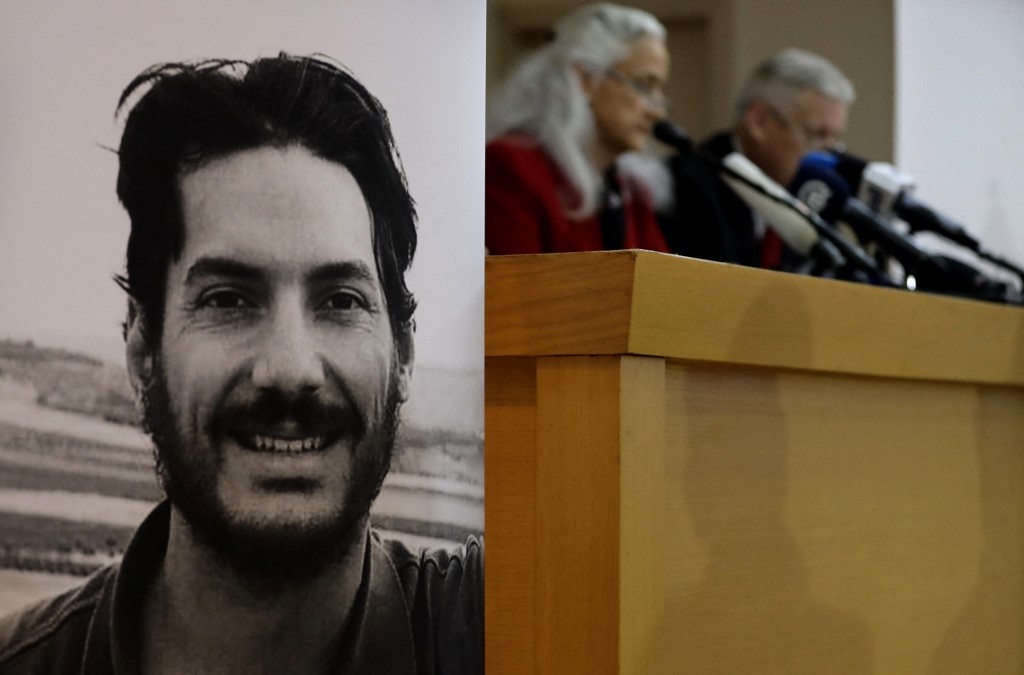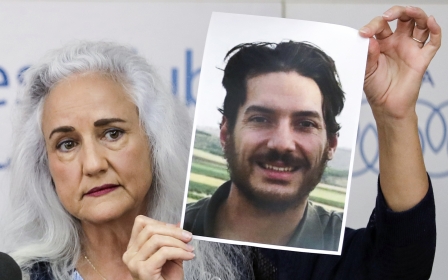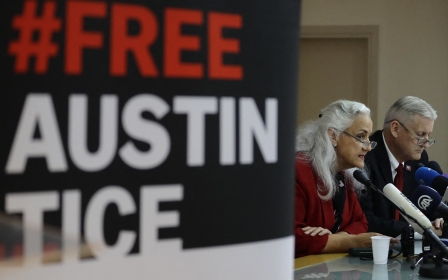Austin Tice: Syria denies holding US journalist captive

The Syrian government on Wednesday denied holding American nationals captive, including journalist Austin Tice, who was abducted a decade ago in Damascus.
It issued a statement in response to US President Joe Biden's comments last week that he knew "with certainty" that Tice "has been held by the Syrian regime". Biden called on Damascus to help the US bring Tice home.
"We have repeatedly asked the government of Syria to work with us so that we can bring Austin home," Biden said last Wednesday.
Syria's foreign ministry denied the accusation in a statement carried by the official Sana news agency.
"The Syrian Arab Republic denies that it has kidnapped or forcibly disappeared any American citizen who entered its territory or resided in areas under its authority," the statement said.
It said it would only accept "official dialogue or communication with the American administration if the talks are public and premised on a respect for Syria's sovereignty, independence and territorial integrity".
Tice, a former US Marine, was a freelance photojournalist working for Agence France-Presse, McClatchy News, the Washington Post, CBS and other news organisations when he disappeared after being detained at a checkpoint near Damascus on 14 August 2012.
Tice, who was 31 at the time, appeared blindfolded in the custody of an unidentified group of armed men in a video a month later, but there has been little news of him since. Biden's statement came on the 10th anniversary of his disappearance.
"There is no higher priority in my administration than the recovery and return of Americans held hostage or wrongfully detained abroad," Biden said.
Back channels
According to the McClatchy news agency, Biden has directed his team on at least three occasions to arrange meetings with top Syrian officials to discuss Tice's case. US and Syrian officials have met and exchanged phone calls, letters and emails.
On 10 August, US Secretary of State Antony Blinken said the "Special Presidential Envoy for Hostage Affairs, Roger Carstens, will continue to engage with the Syrian government in close coordination with the White House" as part of efforts to secure Tice's release.
With official diplomatic channels between Damascus and Washington lacking, the US has also used back channels. A number of US allies have pushed to normalise ties with Damascus recently. Jordan's King Abdullah II held a phone call with his Syrian counterpart in 2021, and earlier this year Syria's President Bashar al-Assad travelled to the UAE.
'The Special Presidential Envoy for Hostage Affairs will continue to engage with the Syrian government in close coordination with the White House'
- US Secretary of State Antony Blinken
Washington has also relied on Major General Abbas Ibrahim, the head of the Lebanese General Security Directorate, for negotiations with Damascus.
The Lebanese spy chief helped arrange the release of US citizen Sam Goodwin, who was detained at a Syrian government checkpoint in 2019, along with a Canadian citizen, Kristian Lee Baxter, who had crossed illegally into Syria from Lebanon.
In May, Biden met with Tice's parents at the Oval Office. Shortly after the visit, Ibrahim travelled to Washington to discuss ways to potentially secure the American's release.
The previous administration under Donald Trump sent a White House official on a rare mission to Damascus in 2020, aiming to secure Tice's freedom. But that mission yielded no visible results.
In 2018, US authorities announced a $1m reward for information that would lead to the journalist's recovery.
Syria erupted into civil war almost a decade ago, after Assad began a brutal crackdown in 2011 on protesters calling for an end to his family's rule. As of 2021, at least 139 journalists had been killed while covering the conflict, according to the Committee to Protect Journalists, a New York-based watchdog.
Middle East Eye delivers independent and unrivalled coverage and analysis of the Middle East, North Africa and beyond. To learn more about republishing this content and the associated fees, please fill out this form. More about MEE can be found here.





